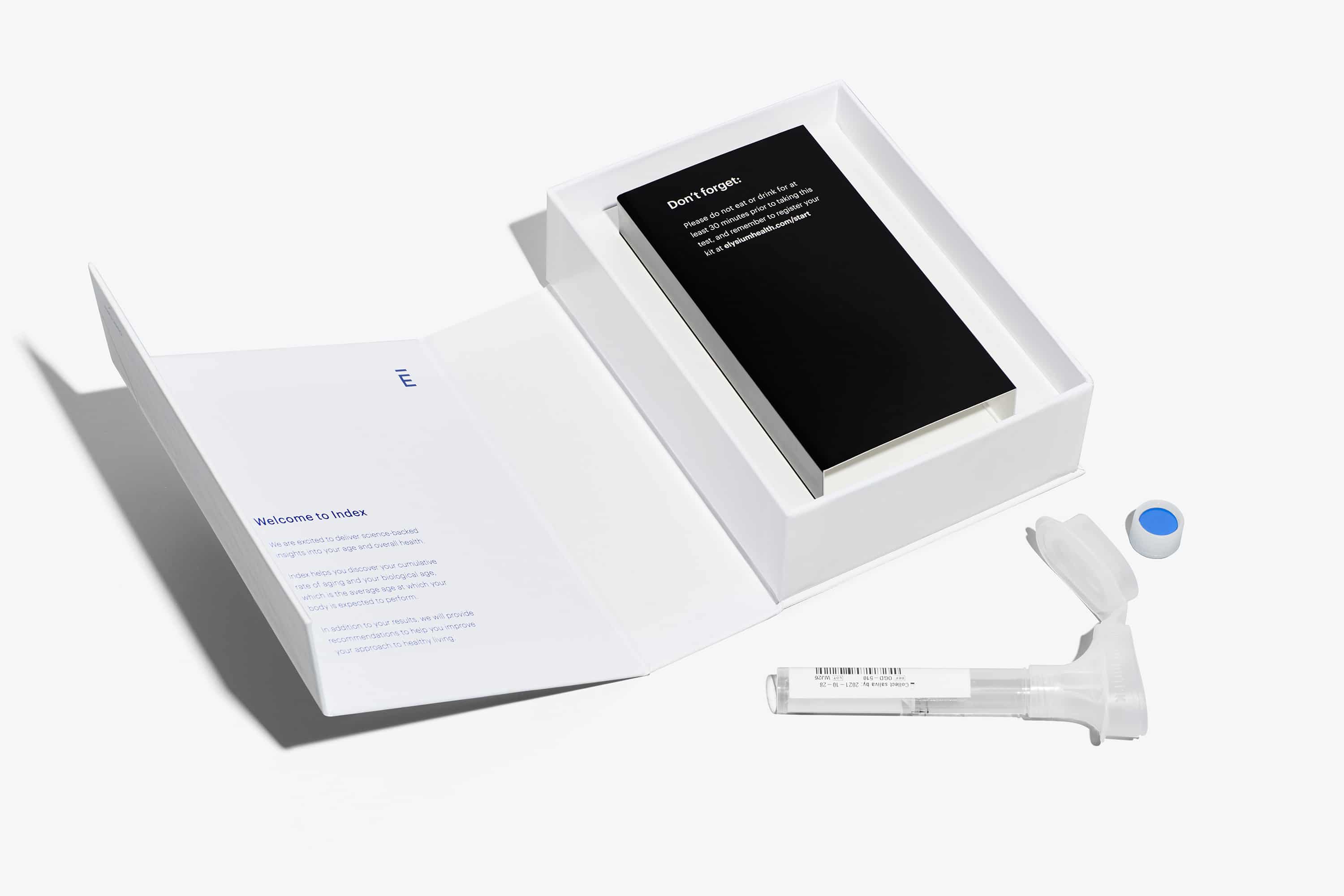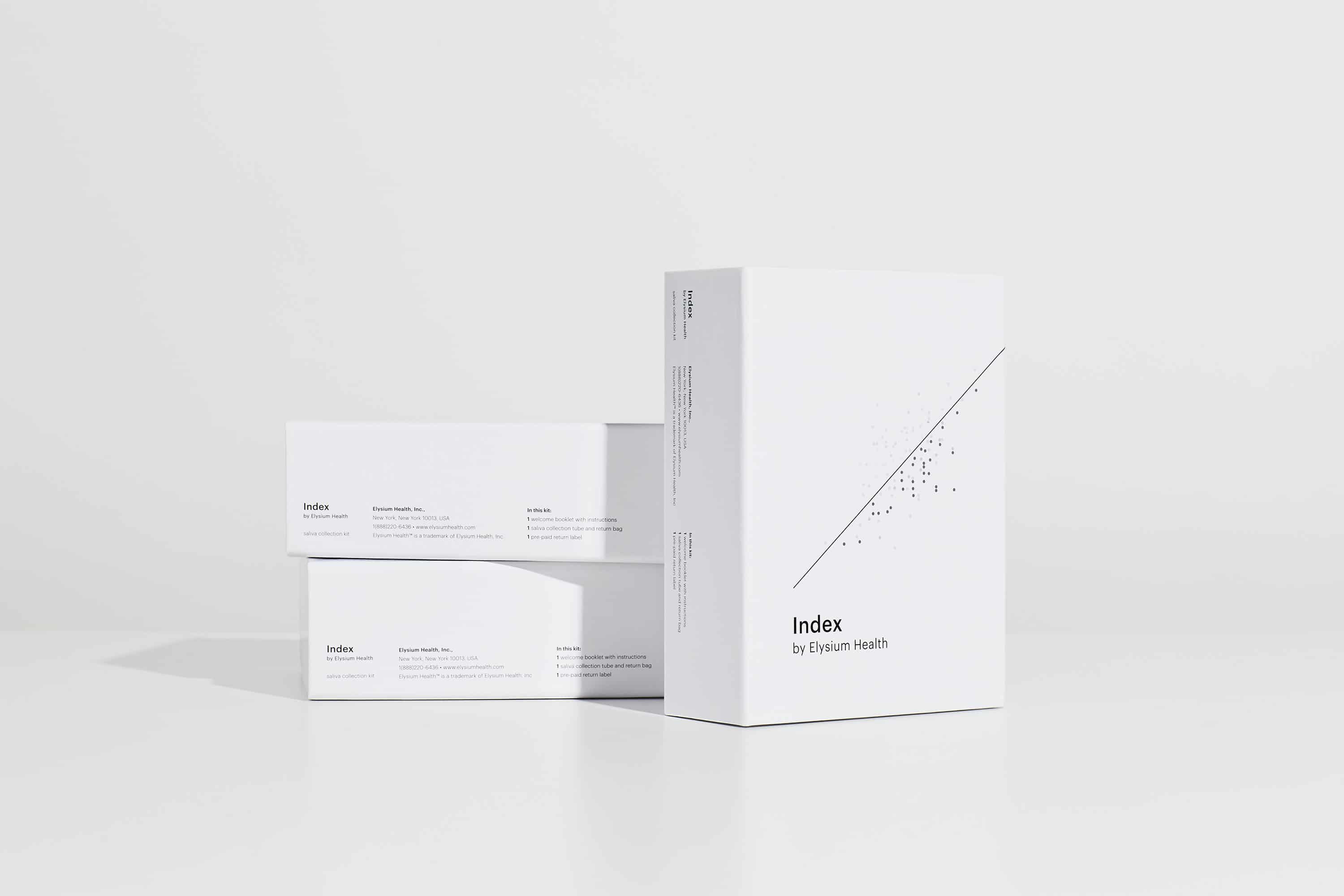I’m a tracking enthusiast. It takes things out of my imagination and places them firmly in reality. As with most of you, I am also keenly interested in understanding as much as I can about my health and, if possible, how well I am doing for my age. Although nice ego boosters, the sort of undefined pleasantries that even doctors spout — “you’re doing good for your age” — mean exactly what? Exactly how good? Compared to whom? Am I doing better or worse over time?
Thus, I became tremendously excited when I learned of an easy mail-in saliva test called Index by Elysium Health. With this test, could I now measure how fast I have been aging? Who would not want to know that?
Last week, I was given the opportunity to speak with Morgan Levine, PhD, assistant professor of pathology at the Yale School of Medicine and a member of both the Yale combined program in Computational Biology and Bioinformatics, and the Yale Center for Research on Aging. She has been instrumental in developing Index by Elysium Health, a test that tracks how fast a person has been aging by using the latest-generation technology in the science of epigenetics.
“The operating system of the cell”
The epigenome is what sits on top of our DNA and signals to it how to behave. A skin cell and a brain cell have the same DNA, it is the epigenome that signals the DNA how to behave as the one or the other. Our DNA is not affected by our lifestyle and age, however our epigenome is.
According to Dr. Levine, “Our Index test measures DNA methylation, which is the chemical modification to DNA which doesn’t change the shape of the DNA, but rather how the DNA is used. It measures how certain genes are being switched on or off. I like to think of epigenetics, or DNA methylation, as the operating system of the cell. It is telling the cell how it should respond, and what it should be: either a skin cell or a brain cell, etc.”
“With Index, we measure over 100,000 sites throughout the genome and, then, using the algorithms we developed, we combine this information to give us an idea of what the biological age seems to be. So you could have the epigenetic profile of someone who is 40, which may differ from their actual age.”
Track Your Rate of Aging
What is most interesting to me is being able to use the tests at regular intervals to check how well I am doing. I asked Dr. Levine for her thoughts on using the test this way and she agreed: “I would suggest not taking the test just once, maybe annually or bi-annually to actually track what we call your cumulative rate of aging. What matters is not so much your measured biological age, but how fast your biological age is increasing relative to your actual age.”
It is always interesting to understand what motivates someone to dedicate their life to a particular field of study. In Dr. Levine’s case, it was personal: “I’ve been interested in aging for a long time; my Ph.D. was actually in aging. I became interested in it because when I was born my father was much older. I was always aware of aging and perhaps wanted to do something that could control it, in a sense. I went into the science of aging to understand: What can we actually do about it? How can we regulate the rate of aging? How can we measure what aging really is?”
“I picked Elysium to work with for a couple of reasons. First is their scientific rigor. For me, as a scientist, it is really important to be affiliated with companies that really put the science and the research as a top priority. They are not afraid to run a clinical trial and not get results that would be advantageous to them. They do not want to put out products that they cannot stand behind 100% in terms of their scientific validity. The other thing is that Elysium’s overall mission is to keep people healthy for as long as possible.”
Future in Diagnostic Usage
What’s coming up next for Index is tremendously exciting. Elysium sees the product evolving in order to make very personalized recommendations — the possible future diagnostic usage of Index. “Right now it is not a diagnostic test designed to diagnose any diseases, but epigenetics are really powerful, and there is a lot of diagnostic potential. As we develop more of these measures, that is an area we are considering going into. Perhaps it would be to diagnose pre-clinically before the disease arrives so that maybe people can take steps to either delay or avoid the disease completely. It is hard to give a timeline on when we could come out with such a test, but these things are moving faster, so it may be just a few years.”
“Hypothetically, we will be able to go back to customers and say, ‘Two years ago when you took the test here is your value for this measure,’ and you will probably end up with multiple measures you can track over time even though currently we are only providing one.”
Consumer Data Safety
One of the things that I very much like about Elysium is its sterling reputation for consumer data safety. Unlike many companies, the customer can choose to opt into research studies, rather than the default “in” and opt “out” that is commonly seen. The customer can also remove everything from their file, other than what is required by law to be maintained, if they don’t want their account to exist anymore. The tests are conducted anonymously and only matched back to the person’s account, where only they can access the information.
For people of any age, we, for the most part, don’t actually know how well we are doing. We tend to overrate how slowly or underrate how fast we have been aging. Sometimes we need an objective measure to tell us how we are doing. Index is a revolutionary at-home test that can help with exactly this question. I just mailed mine in and am tremendously excited to learn how well I have or have not been aging. I’ll report back in a few weeks once I have the results.





